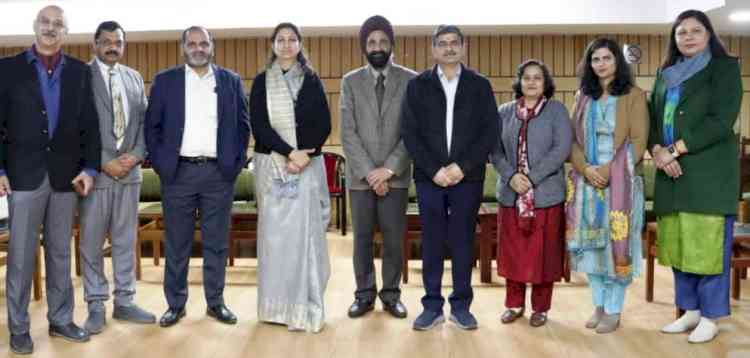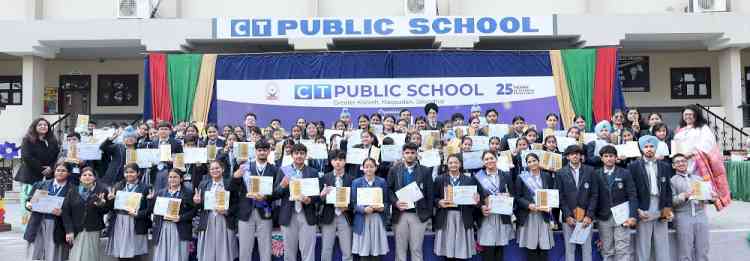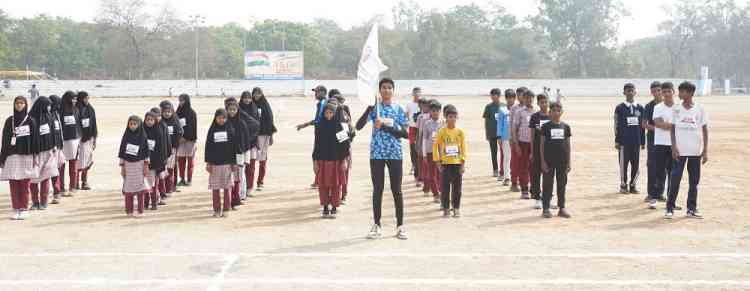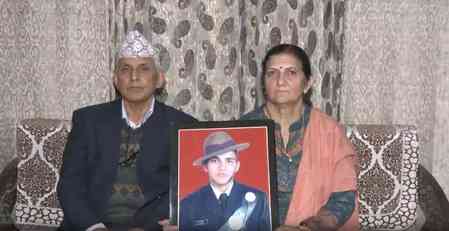41st INCA International Conference

Chandigarh, October 28, 2021: In the afternoon session of Day I of the conference i.e. on October 27, three memorial lectures and a plenary session were held. Todar Mall Memorial Lecture was delivered byDr.Prithvis Nag, former Surveyor General of India; Former Director, NATMO; Former Vice Chancellor Kashi Vidyapeeth. He spoke onNational Spatial Data Infrastructure NSDI and National Geo - Spatial Guidelines Interface. Later, Prof. S.P. Chatterji Memorial Lecture was given by Prof. K R Dixit, Former President NAGI, IIG, Former Head, Department of Geography, Savitri Bai Phule University, Pune. He talked about innovation, evolution and revolution in cartography, its development and the arrival of digital cartography. He also touched upon importance of GIS and Remote Sensing. Lastly, Prof. Kalpana Markandey, Former Head, Department of Geography, Osmania University, Hyderabad delivered Prof. Shah ManjoorAlam Memorial Lecture, andemphasised upon modern cartography and geo-spatial data and usage of GPS, GIS, statistics in cartography.
The Plenary Session-I was chaired by Vice Admiral Adhir Arora, Chief Hydrographer, Government of India and Co-Chaired by Prof. SmitaBhutani, Panjab University, Chandigarh. Firstly, Prof Tim Trainor, President of International Cartographic Association (ICA); Member US National Geospatial Advisory Committee spoke on the strength of ICA, Sustainable Developmental Goals and geo-spatial data.Then, Dr. V. Raghawanswami, Former Deputy Director, NRSC, ISRO, India presented his views on the emerging trends in mapping and open geospatial data technologies. The Former Director, SASE, DRDO, India,Dr.AshwagoshaGanju, spoke on cartography for early warning and crisis management. Also, Dr. Shahnawaz, Director South and South-East Asia, UNIGIS International, University of Salzburg, Austria delivered a lecture on remote sensing-based mapping and monitoring of atmospheric pollution in India.
Presentations of Day II (October 28, 2021)
On day II of the conference, three technical sessions and a panel discussion were heldin the morning session.
The technical session A1 was chaired by Professor MS Jaglan, Kurukshetra University, Kurukshetra and Co-Chaired by Professor Dhian Kaur, Panjab University, Chandigarh. Prof. Garry Fehr (University of Fraser Valley, Canada) delivered a plenary lecture on the topic ' Evolution of Participatory Mapping' and remarkedthat participatory maps provide power to participants. Prof. Bimal Kumar Kardelivered an Invited Lecture of the Session. He spoke on the effect of urban growth and declining urban green space on land surface temperature (LST) and associated micro-climate conditions in Siliguri District of West Bengal.There were five paper presentations in this session.Mr. Shashikant Sahoo (scientist of Punjab Remote Sensing Center, Ludhiana) presented a paper on: "Deciphering prospective groundwater zone's using integrated multi-criteria Analysis with geospatial environment in lower Shiwalik Region of Hoshiarpur District in Punjab ". In his paper he highlighted the problem of groundwater depletion in lower Shiwalik Region of Hoshiarpur District of Punjab and emphasised on the role of Geo-spatial Technology to assess the ground water depletion Mr. Rahul and Prof.Ravinder Kaur of Panjab University, Chandigarh presented their paper on: “Mapping the Spatio - Temporal Dynamics of Covid - 19 outbreak in Chandigarh (U T) Chandigarh, using Geospatial Techniques”.Ankit Sagar,Cédric Vega, Christian Piédallu, Olivier Bouriaud, Jean-Pierre Renaud of France presented their paper on ''High Resolution Mapping of Forest Resources and Prediction Reliability Using Multisource Inventory Approach''.Mohd. Waseem Naikoo, Mohd.Rihan, M.Ishtiaq&Atiqur Rahman of Department of Geography, Jamia Millia Islamia, New Delhi, India spoke on mapping of post liberalization growth of real estate in Delhi-NCR using digital cartographic techniques. Mr. Vivek Saxena, a PhDScholar, DRDO, Chandigarh, presented a comparative studyof Decesion Tree Ensemble based classification techniques for landslide susceptibility mapping.
The technical session B1 was chaired by Prof Ravindra G Jaybhaye, Savitribai Phule Pune University, Pune and Co-Chaired by Dr Navneet Kaur, Panjab University, Chandigarh. Plenary lecture was delivered by Dr. M.R. Bhutiyani, Former Director, Defence Terrain Research Laboratory (DTRL), Delhi, India. He talked about the application of advanced geospatial technology from a defence perspective. Also, there was an invited lecture on the trend in ubiquitous geography by Prof. R. Jaganathan. Four papers were presented during this session. Seema Mehra Parihar, Professor, Department of Geography, Kirori Mal College, University of Delhi spoke on the topic “Cartography Curriculum Needs Redesigning in Self Reliant India: Some Insights from Six Zones of India”. Jawahar Lal Jain,Retd. Professor, Sagar University, Sagar, India presenteda paper on dichotomy of producer’s and user’s perspectives on cartographic generalization.Labani Sarkar from SACT, BanipurMahilaMahavidyalayaand Panchali Majumdar, Associate Professor in Geography, EastCalcutta Girls’ College Lake Town co-presented a paper titled “Empowerment of women: Dream or Reality? A case study of Bagna Village, Gaighata Block, North 24 Parganas. The last presenter was Sarabjit Singh, Research Fellow,Natural Resources and Environment Division Punjab Remote Sensing Centre, Ludhiana. He presented on " Evolution of Digital Cartography at Micro Level:A Case Study from Rural Punjab in India."
The technical session C1 was chaired by Prof. MS Rana, MDU Rohtak and Co-Chaired by Dr. Vishwa B.S. Chandel, Panjab University, Chandigarh. The session commenced with the lead lecture of Prof. Sahab Fazal on The Realities of UrbanLand use Planning in India: A Case Study. Thereafter, subsequent lectures were given byfour research scholars from different institutions. Firstly, Smita Varma of Amity Institute ofGeoinformatics and Remote Sensing (AIGIRS) presented on the topic ComparativeAssessment of Heat Islands in Urban-Industrial Cities of India. Secondly, Sujata Das, MTech(Geoinformatics), Department of Geography, University of Madras, Guindy, Chennai gave alecture on Analysis of Land Surface Temperature with Different Indices Using RemoteSensing Techniques: A Case Study of Guwahati City, Assam. Third lecture was delivered byKumar Rajeev of Amity Institute of Geoinformatics and Remote Sensing (AIGIRS) onImpact Assessment of Land use Land Cover Change on Land Surface Temperature in DelhiNational Capital Region, India. The concluding lecture was given by Mahesh Thakur ofCentre of Advanced study in Geology, Panjab University, Chandigarh on the topic ActiveFault and Landslide Investigation in the North-western Himalaya, India.
The afternoon sessions of Day II are ongoing.


 cityairnews
cityairnews 










